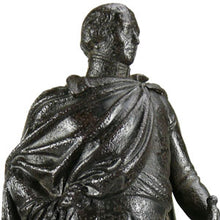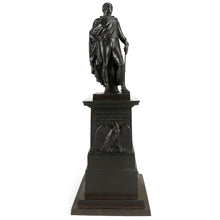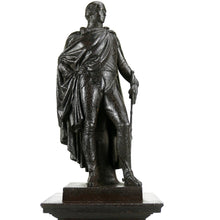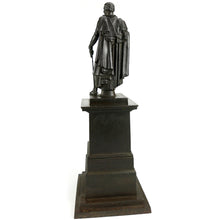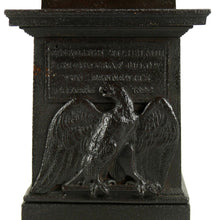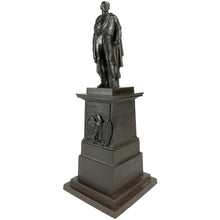Berlin Iron - General Graf Bulow von Dennewitz, 1825
- Regular price
- £845
- Sale price
- £845
- Regular price
-
- Unit price
- /per
Adding product to your cart
Height overall: 54cm (21.2in)
Literature: Eisen statt Gold: Preussischer Eisenkunstguss aus dem Schloss Charlottenburg, dem Berlin Museum und anderen Sammlungen, 1982.
Berlin ironware. Reduced scale model by August Kiss of the Royal Prussian Foundries, Berlin of the memorial statue of the Prussian general by Christian Daniel Rauch on the Unter den Linden, raised on a stepped base applied with spreadeagle and inscription plaque in relief, ‘Friedrich Wilhelm III / Dem Gen. Grafen Buelow / Von Dennewitz / Im Iahr 1822’.
Read more
General Friedrich Wilhelm Freiherr von Bülow, Graf von Dennewitz (1755-1816) entered the Prussian Army in 1768. Highly educated and musically gifted he was appointed military tutor to Prince Louis Ferdinand (1772-1806), a nephew of King Frederick the Great in 1792. von Bülow served in the campaigns against Revolutionary France in 1793-4 (receiving the Pour le Mérite for the siege of Mainz), but the financial misdeeds of his brother Dietrich caused him both anguish and financial loss, while the death of his wife and two children were yet more dreadful blows. He served with distinction under Lestocq in 1806-07, and thereafter devoted himself to the reformation of the Prussian Army.
Generalleutnant from March 1813, he made a great contribution to success in the 'War of Liberation', winning the actions of Gross-beeren and Dennewitz, taking his title from the latter, which raised his popularity almost to that of Blücher. His corps played an important part in the Leipzig campaign, after which he was sent into The Netherlands, and joined Blücher for the victory of Laon.
Appointed full general, he was briefly CinC in Prussia before commanding IV Corps in the Hundred Days campaign, in which he was especially distinguished as leader of the Prussian units which arrived on Napoleon's right flank at Waterloo, the importance of which was crucial. As Wellington reported, 'The operation of General Bülow upon the enemy's flank was a most decisive one; and, even if I had not found myself in a situation to make the attack which produced the final result, it would have forced the enemy to retire if his attacks should have failed, and would have prevented him from taking advantage of them if they should unfortunately have succeeded." Von Bülow died shortly after returning to his command in Prussia following the conclusion of the war.








